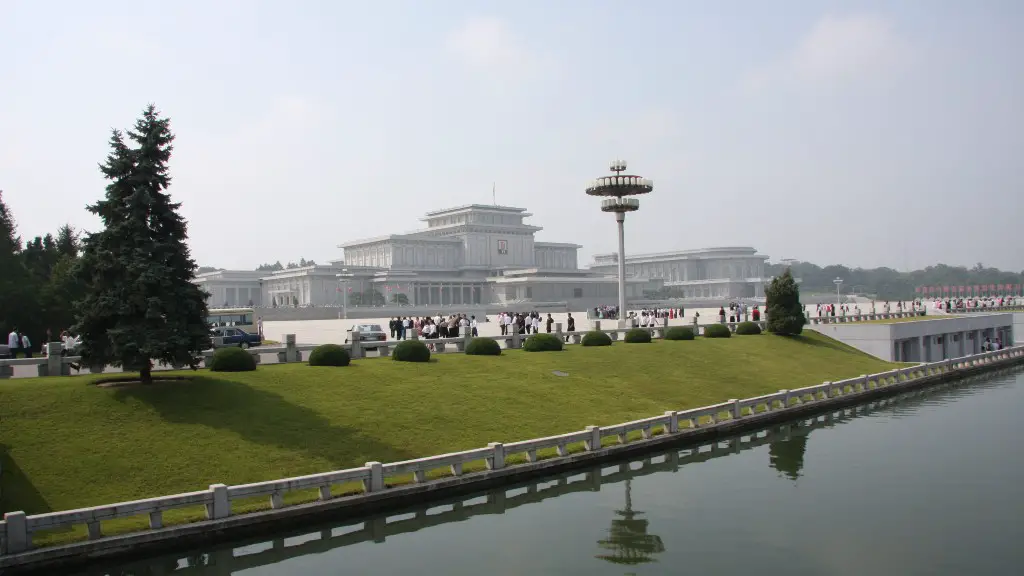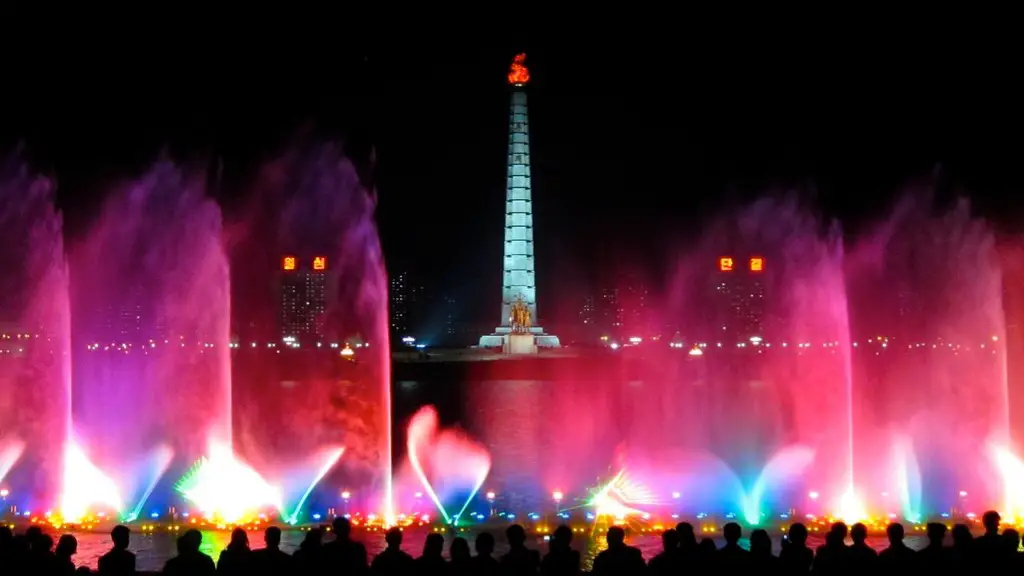Background Information
Nuclear ambitions have been a major concern in East Asia, particularly in the wake of North Korea’s announcement that it possesses a nuclear weapon. North Korea has pursued its nuclear weapons program since the mid-1980s. The country has progressed from research to developing nuclear weapons, conducting its first successful nuclear test in 2006 and increasing its stockpile substantially in the following years. North Korea claims to have achieved the capability to produce hydrogen bombs, capable of delivering higher levels of nuclear devastation. North Korea is currently the only country in the world that is believed to be actively developing nuclear weapons, prompting international condemnation and sanctions from the United Nations Security Council.
Reasons For Developing Nuclear Weapons
North Korea has cited a range of reasons for pursuing nuclear weapons, including domestic and foreign policy motivations. Domestically, North Korean leaders have used the high-profile pursuit of nuclear weapons as a rallying call for the country’s population, providing a sense of national pride and power. North Korea’s leaders also cite the need for national security and non-interference from outside powers, particularly the United States. Although North Korea maintains that its pursuit of nuclear weapons is purely defensive, in practice, it has threatened to use them as leverage in negotiations with other countries.
International Response
The international community has viewed North Korea’s nuclear program with alarm, as the proliferation of nuclear weapons is considered a grave threat to global security. In response, the United Nations Security Council (UNSC) has imposed a range of economic sanctions on North Korea, including banning imports of luxury goods and oil and freezing the assets of the country’s leaders. The US has also imposed unilateral sanctions in an effort to pressure North Korea to abandon its nuclear ambitions.
Status of Negotiations
The US and North Korea have engaged in a series of talks in the past decade to try to resolve the nuclear impasse. The most recent talks, between US President Donald Trump and North Korean leader Kim Jong-un in 2018, broke down in part due to the US refusal to lift sanctions before North Korea made significant denuclearization concessions. Despite the diplomatic stalemate, both sides have maintained contact since then and have engaged in low-level talks.
Experts’ Perspectives
Experts believe that the main reason North Korea is pursuing nuclear weapons is for self-preservation, with the regime viewing them as a deterrent against US military aggression. Christopher Green, a North Korea analyst at the International Crisis Group, has argued that North Korea’s pursuit of nuclear weapons is “rooted in Pyongyang’s fears of regime security” and said that the regime is “highly unlikely” to give them up without “detailed guarantees of its security, economic benefits and a peace treaty that ends the Korean War.”
In addition to self-preservation, experts also believe that North Korea is seeking economic aid and diplomatic recognition. Anna Fifield, Washington Post bureau chief in Seoul, has argued that, “For Pyongyang, the nuclear arsenal isn’t just a deterrent: It’s also a source of leverage, a way to ensure that it gets the best possible deal and doesn’t get pushed around by the United States.”
Risk of Escalation
Any miscalculation on either side could lead to a dangerous escalation of tensions in the region, with the possibility of a military confrontation between North Korea and the US, potentially involving the use of nuclear weapons. Moreover, even if North Korea does not use its nuclear weapons directly, their existence has the potential to further destabilize the region by prompting other countries to develop their own nuclear programs, leading to a nuclear arms race in Asia.
Economic Sanctions
The most effective way of addressing North Korea’s nuclear ambitions is to apply economic pressure, in the form of economic sanctions. UNSC sanctions and US unilateral sanctions have exacted a substantial human and economic cost on North Korea, though it is unclear how successful they have been in curbing the country’s nuclear ambitions. Moreover, US unilateral sanctions have had the unintended consequence of hurting the population, due to widespread shortages of food, fuel, and medicine and a weakened economy.
Political Interventions
Political interventions have also been attempted in the past, in the form of diplomatic talks with North Korea. While such talks have yielded a few tangible results, such as the temporary suspension of the country’s nuclear weapons program, they have done little to address the fundamental disagreement between the two sides regarding the country’s nuclear ambitions. Moreover, it is unclear whether North Korea is genuinely committed to denuclearization, as it has made numerous commitments in the past that it has failed to fulfill.
Military Approach
The US has threatened military action in the past if North Korea continues to pursue its nuclear program. However, such a course of action has the potential to cause immense destruction for North Korea, as the country’s outdated military hardware would not be able to stand up to a modern, well-equipped US force. In addition, the US would face an immense political cost if it decided to launch a military strike, due to the likelihood of high casualties among the North Korean population.
Analyzing North Korean Intentions
Given North Korea’s constant denials of both its pursuit of nuclear weapons and its sense of insecurity, it is difficult to assess the regime’s true intentions. While some analysts believe that North Korea is genuine in its desire for denuclearization, others believe that the regime is using the nuclear issue as a way of extracting economic aid and diplomatic recognition from the international community. These conflicting opinions make it difficult to ascertain what North Korea’s intentions truly are and how best to address them.
Implications of International Pressure
International pressure is having some effect on North Korea, though it is difficult to determine how much. Sanctions have weakened the country’s economy, while political pressure has forced the regime to engage in diplomatic talks. However, it is unclear whether these measures are enough to compel North Korea to abandon its nuclear ambitions.
Risk of Proliferation
The failure to resolve the issue of North Korea’s nuclear weapons has the potential to spark a nuclear arms race in Asia, as other countries may see the need to develop their own nuclear capabilities in order to protect themselves from North Korea’s perceived nuclear threat. This would be a major setback for global non-proliferation efforts and could lead to an increase in regional tensions.



